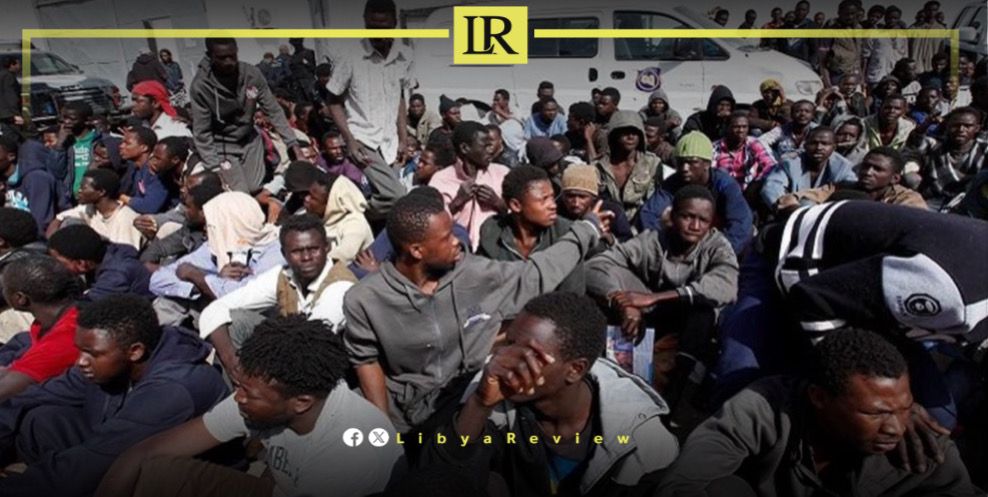On Sunday, the Anti-Illegal Immigration Agency in Benghazi announced that it had deported 16 migrants of various nationalities, including some with contagious diseases.
According to the agency’s statement, the deportation took place on Saturday from the Ganfouda Detention and Deportation Centre via Benina International Airport. This action followed the instructions of the agency’s head, Major General Nouri Al-Saadi, who ordered the prompt repatriation of migrants to their home countries.
The agency specified that the deported migrants included three from Bangladesh and 13 from Nigeria. Among them were individuals infected with contagious diseases such as Hepatitis C and B.
The International Organization for Migration (IOM) reported that between 19 and 25 May 2024, a total of 233 migrants were intercepted and returned to Libya. This period saw intensified efforts by Libyan authorities to manage the flow of migrants attempting to cross the Mediterranean Sea to reach Europe.
Libya continues to be a major transit point for migrants and refugees fleeing conflict, persecution, and poverty in Africa and the Middle East. Despite the dangers of crossing the Mediterranean, many migrants embark on this perilous journey in hopes of reaching European shores and seeking a better life.
The IOM has repeatedly expressed concerns about the conditions in Libyan detention centers, where migrants often face overcrowding, inadequate facilities, and human rights abuses. The organization continues to call for international support to improve the living conditions and ensure the protection of migrants in Libya.
The International Organization for Migration (IOM) announced that it has voluntarily repatriated 80,000 irregular migrants from Libya to their home countries. This initiative is part of the IOM’s voluntary return program.
According to a statement from the organization, “Since 2015, the IOM has assisted 80,000 migrants in returning safely and with dignity from Libya to their countries of origin through the Voluntary Humanitarian Return program.”
“This initiative has provided a critical lifeline for stranded migrants from over 49 different nationalities across Africa and Asia who wish to return home and rebuild their lives.”


